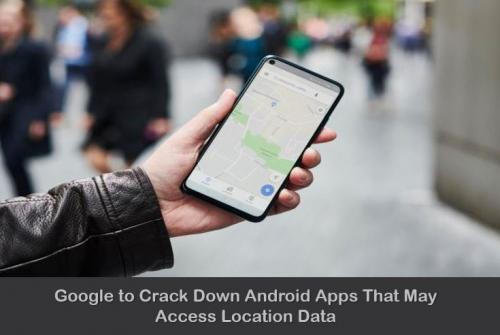Google will review all Android apps that request background location access

A year ago, Android 10 launched with a feature in which users can limit an app’s location access to only “when the application is actively being in use”. Later with Android 11, there came privacy-focused features for security of users and it expanded with “one-time access only”, feature. This is quite similar to another Google Play policy that requires "developers need to get approval if they need to access users’ location data in the background."
This approach is focused on older versions of operating systems, and will be applied at the Play Store level.
As Google queried and investigated a little bit, it observed that there are a considerable number of lay Store applications that mentioned background location access, but they didn’t really need it in real-time. Indeed, a significant number of these applications could give a similar user experience by possibly getting to the location data when the user is actively using the application.
With the newest Android R 11 launch, Google wants to combat this issue to further ease the process for users. It aims to make it simpler for users to pick when to share their location data without using smart switch apps and they shouldn't be requested a permission pop-up if the app does not need any such info at all.
Google has sought out a way to muzzle the request to unnecessarily access the users’ location by implementing the following steps. If developers need to access the location data of users in the background, it will first get approval from Google. The Google’s app store review team will then be factoring the following consideration while giving permission:
Does the feature provide a clear value to the user?
Would users expect the application to get access to their location data in the background?
Is the feature essential to the primary function and usability of the application?
Would you be able to deliver a similar user experience without accessing location in the background?
The company has provided three sample use cases, that would rather confirm the need for background location access or otherwise. These sample use cases are as follows:
An app that sends emergency or safety alerts as part of its core functionality – and clearly communicates why access is needed to the user – would have a strong case to request background location.
A social networking app that allows users to continuously share their location with friends would also have a strong case to access location in the background.
An app with a store locator feature would work just fine by only accessing location when the app is visible to the user. In this scenario, the app would not have a strong case to request background location under the new policy.
This policy begins in April, with requirements for new applications starting August 3 and existing ones November 2.
April: official Google Play approach update with background location
May: developers can request feedback on their use case by means of the Play Console with an expected reply time of about fourteen days, contingent upon volume
August third: all new applications submitted to Google Play that need background location access should be endorsed
November second: all current applications that request background location access will be removed and then either would be given approval or will be removed from Google Play
This new policy is an extension of Google Play Store’s previous approaches that limit third-party applications from "superfluously" getting to device’s call and text logs. Google now allows only dialers and SMS clients that need it as their core functionality after passing a review test by Google.
Post Your Ad Here
Comments